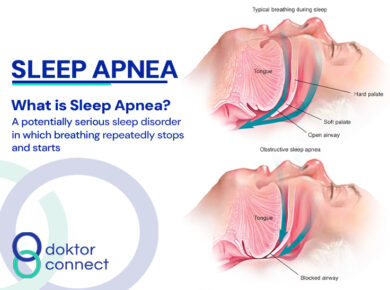Over 6 out of every 100 Nigerians have asthma. Nigeria alone is responsible for 5% of the 262 million people living with asthma worldwide. Asthma took the lives of 461,000 globally in 2019. It is the most common chronic disease in children. While it can be fatal, asthma can be managed with proper treatment and care.
What is Asthma?
Asthma is a chronic illness that causes the airways to swell (inflammation) and makes the pathway air flows through smaller. This obstructs the flow of air. This obstruction and swelling make it difficult for you to breathe, and people having an asthmatic attack often complain of chest tightness, wheezing, and difficulty breathing.
Contrary to popular myths, asthma is a non-communicable disease. You cannot ‘catch’ the disease by being in contact with someone that has it. However, asthma has no cure.
What can cause my child to have asthma?
The causes are not clear, but some factors increase your child’s risk of having asthma. They include:
- A family history of asthma or allergies
- Exposure to cigarettes during pregnancy
- Obesity
- Male child
- History of respiratory illnesses like sinusitis, pneumonia, and bronchitis.
- Previous allergic reaction.
How can I know if my child has asthma?
A diagnosis of asthma is made by a doctor. So, while you cannot tell if your child has asthma, some signs and symptoms that may heighten your suspicion include:
- A wheezing or whistling sound when your child breathes out
- Fast breathing
- A constant cough that appears to be associated with physical activity
- Chest congestion or tightness
- Frequent respiratory illnesses
If you notice any of these symptoms, you should take your child to the hospital for further evaluation.
Common symptoms/Signs of an Asthmatic Attack
If you notice any of the following in your child or loved one with asthma, then the person is probably having an attack:
- Wheezing or audible whistling sound between breaths
- Difficulty breathing
- Fast breathing
- Flaring of the nostrils, or indrawing of the sides of the abdomen while breathing
- Difficulty talking or completing sentences
- Constant coughing
These symptoms may mean that the person is having an attack, and you can make use of an inhaler prescribed by your doctor to relieve the symptoms. If it is ineffective, do not hesitate to go to the hospital!
Asthma Care and Prevention Tips
Identify Triggers
This is the most effective way to prevent asthmatic attacks. Identifying what triggers attacks may be difficult. So you can keep an Asthma Diary for your child. This diary should contain all the environmental, emotional and physical factors around your child. Over time, you will likely detect a pattern or trigger that causes attacks.
Avoid Smoke, Mold & Dust
Smoke, mould and dust are common triggers of asthmatic attacks. Avoiding them may be tough, especially if you live in a busy city like Lagos. One thing you can do is to wear facemasks when you go out. The facemasks will help filter out the dust and smoke to a reasonable extent.
Use Perfume & Fragrances Lightly
Another common trigger of asthmatic attacks is exposure to strong smells. Your child or loved one with asthma should use perfumes and fragrances sparingly, or avoid them to prevent attacks.
Prevent Cold & Flu
By observing respiratory hygiene, your child or loved one with asthma can avoid worsening asthma symptoms. One of the most effective components of respiratory hygiene is regular handwashing with soap and water, especially after touching your mouth or nose. This is vital during the rainy season when flu is more rampant. Avoid sharing food or drinks with people that have the flu as well.
Stay Trim
Obesity is linked to an increased risk of asthma and can worsen asthma symptoms. So, ensure that your child or loved one with asthma maintains a healthy weight. It is advisable to check with a doctor before your loved one or child with asthma starts an exercise routine.
Adhere To Medication
Ensure that the person with asthma takes their medications as prescribed by the doctor. This involves taking long-term drugs that help with reducing inflammation in the airways. The drugs are often taken daily. Also, ensure that your child or loved one makes use of their short-term reliever medication (inhaler) whenever an attack starts.
Bonus Point
Asthma care is continuous, so don’t skip an appointment with the doctor. Also, if you notice an increase in the frequency of your child’s attacks, or any new development, don’t hesitate to consult a doctor.




